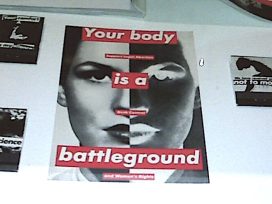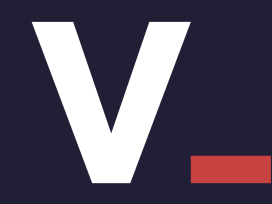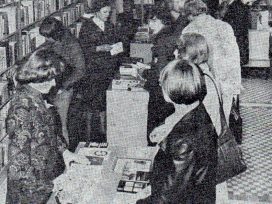Priyanka Hutschenreiter (PH): How did Voxeurop start? What is your history?
Paul Salvanes (PS): Voxeurop’s predecessor started in the 2000s. The initial name was Presseurop. It was a media project supported 100% by a European Commission grant. It was owned by a French journal named Courier International, which is quite well known in France for translating articles from across the world into French. This project was actually going quite well with a team of around 20. Then in 2013 the Commission decided to stop funding the project and Courier International, who owned the project, decided not to carry on. So this project was basically dead at the time, and a bunch of crazy European journalists decided to keep it alive. They negotiated that they would keep the archives of Presseur and create a new entity, which then became Voxeurop.
They started first as an association in 2014, and in 2017 it became a European cooperative society. While it was a European cooperative, we added an outstanding extra layer to this in 2019 by opening up the shareholder ecosystem to non-journalists or translators. This is what we call a collective interest cooperative in France, not just a workers’ cooperative, and this allowed us since 2019 to invite readers to become shareholders of the project. So currently, we are just about 200 shareholders. 60%+ are readers. 30% are journalists or translators and the rest are the founders. It’s a real European cooperative society down to the capital because it’s held by 200 people from 30 European countries. And that’s how we’ve been going since 2019.
PH: What do you think draws your readers into wanting to be shareholders? Why do you think Voxeurop is so important to them?
PS: There are different categories of supporters, but I think some actually just want to support Voxeurop out of principle and when we told them that we wanted to sell shares, they thought it was one possible way for them to support us. Some do it more as a donation, basically, because we do not distribute any benefits at the end of the year. If anything is left over then we reinvest it in our projects, we’re not redistributing anything, which makes it de facto a nonprofit project, so people are not there just because they will get something out of it. They know that journalism needs support and this is one of the possibilities we gave them to support us. Plus, there are those people who are also just interested in journalism. They think of it as an opportunity for them to get involved in the strategy and orientations of Voxeurop. For example, once a year they can vote in the general assembly about the strategy, about the projects, and our outreach activities.
These meetings show us that we are part of a community of people involved in European projects. We have people connecting from Austria, from Portugal, from France, from Italy, and it’s like sharing a project, even though it’s not their main project. Maybe they give us one hour per year maximum and they respond to emails, but there’s a sense of ownership that you don’t have if you just donate. We also try to insist on the fact that independent journalism needs capital. We’re not owned by a billionaire or by an industrial group. So if we don’t have a vast number of people willing to support us with, for example, small shares, then it would be impossible simply to compete with what exists out there.
PH: Was there a particular historical moment or something specific that really motivated the founding journalists to take over the archive of Presseurop and found Voxeurop?
PS: I joined in 2019. The core of Voxeurop, co-founders Gian-Paolo Accardo and Catherine André and the others, at the time, felt that they were European. Even their children have two or three nationalities. They married people from different countries. They had Europe at home. They wanted to create a pan-European public space. They felt the need to cover news across borders, to get involved with journalists from different countries. It’s just sheer passion for Europe. And the passion is still here, even though a few years have passed.
PH: What are the projects that you’re currently working on?
PS: We have several projects running right now. Some of them are co-funded by the EU, such as the Come Together and Display Europe projects. The projects we’re involved in are mostly editorial projects, gathering newsrooms from across the continent and producing something together. It’s about data journalism in one network. It’s about European related news content in another one, or developing a social media platform for independent European media.
In these projects, Voxeurop is mostly coordinating the distribution within these networks, as well as syndication, translation, of course, and content production. I would say these projects are quite natural for us: because we are pan-European by definition, we are supposed to work with newsrooms across Europe and across several languages.
We also are a thematic newsroom, meaning that we cover topics across European borders by themes. We have a few broad topics like democracy, climate change, migration and asylum, equality and gender. We have been covering the war in Ukraine continuously since the Russian invasion. We are also covering what’s happening in Georgia and the events happening at European borders.
PH: How has Voxeurop’s funding strategy changed over the years and how are you currently financing your activities?
PS: Presseurop disappeared in the past because it was too dependent on one grant. We have been trying since 2019 to diversify our revenue streams. We have three main ones, the first one is direct support from readers. Until recently we received their support through subscriptions, but we are now in the process of changing these to donations. We felt there was confusion in terms of what the difference was between buying shares and having a subscription.
We are trying to be clearer now. You can donate or you can buy shares. We don’t want to put any of our content behind a paywall. We want people to support us for what we do. We asked our subscribers why they subscribed and 90% responded that they simply wanted to support us. This support is clearly the smaller part of our income. In 2024, it was about 10-15%. So it’s quite small, but we expect it to grow.
The second source of our income is selling services. We sell what we do best: translations. Voxeurop houses a translation agency, which sells translations to newsrooms, foundations, associations, and corporate organizations. Hence we are running business to business activities. It is quite important in our business model. We offer over 250 language pairs in our network of translators. We focus only on European languages. As a cooperative, most of the translators are shareholders, so it becomes a means for us to provide them with some additional work. They translate for the media, but they also translate for clients, meaning that they generate more income through us, which connects them more to Voxeurop and our ethos.
Our third revenue stream is made up of mostly European projects, but also funding from foundations, specifically for investigative journalism, or structural funding. We managed to get a few grants to cover some of the topics that we have. Investigating green finance, for example, has been one of the things for which we managed to get grants.
That’s how we balance it all, but it’s a challenge to make this happen every year. Come Together has been a great project also for this, because even the first study visit in Warsaw, looking at how some newsrooms managed to monetize their platforms and engage their audiences, was quite interesting for us. It really helped us rethink our shift from subscriptions to donations and how to communicate this and how to campaign. With donations, you have to campaign almost permanently. But I think we are now getting to a point where people are starting to understand that independent media needs their support. Otherwise, they will just be informed by corporations, billionaires or foreign agents.
This interview was commissioned as part of Come Together, a project leveraging existing wisdom from community media organizations in six different countries to foster innovative approaches in global independent journalism.







